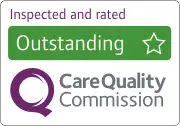Funding - Private, Council & NHS Social Care Options
There are many ways to pay for care at home, and understanding each one is important. Some options might fit your needs better than others.
In this guide, we'll explore council and health authority support as well as home care grants and other financial aid that is available.
We aim to make these options clear and easy to understand. This way, you or your loved one can get the necessary care with a financial plan that makes sense.
Speak to a care expert




My mum’s got all her things around her, she’s got more freedom and 1-1 with the carers. She sleeps better, eats better, is more content and can go out when she likes.
Rated 9.9/10 on homecare.co.uk


One of the Top 20 Home Care Groups in 2025 - homecare.co.uk
Instant care cost calculator
Our friendly care cost calculator gives you a quick estimate based on your unique needs


What is live-in care and how does it work?
Council funding is a crucial source of support for those needing care at home in the UK. Understanding the eligibility criteria, financial assessment process, and regional variations is key to accessing this support.
Eligibility Criteria: Local authority funding for care largely depends on your financial situation but it's worth noting that it is provided based on a need, not a want. For couples, the assessment considers both partners' income and savings.
This includes the contents of joint bank accounts, which are typically assessed as being split equally between the two account holders. For example, if a joint bank account holds £30,000, the local authority would assess each individual as having £15,000.
The care needs of each individual are evaluated separately, meaning if your combined savings and assets fall below a certain level, either you or your partner might be eligible for council funding. The threshold for savings and assets varies across the UK:
- England: £23,250
- Wales: £24,000 for home care and £50,000 for care in a care home
- Scotland: £28,750
- Northern Ireland: £23,250
Assessment Process: Before you can receive support from your local council, you'll need to go through a financial assessment, often referred to as a means test. The council arranges this after they assess your care needs, considering your health, living situation, and the type of care you require.
In the means test, they'll look at your income, like pensions and benefits, as well as your savings and investments. Your property is generally not included in the means test if you're receiving care at home.
However, if you're moving into a care home, the value of your property may be considered, except if your partner continues living there. This means test helps determine how much, if anything, you'll need to pay towards your care.
Understanding this process can help you prepare effectively. For more information, contact your council's social services department.
NHS Continuing Healthcare
NHS Continuing Healthcare is a full care package covering all personal and healthcare costs for eligible individuals. It's designed for those with complex medical needs that can be managed outside a hospital.
This type of care is not based on your income or savings, meaning there is no means test, unlike with local council support. NHS Continuing Healthcare is typically considered when an individual’s needs are primarily medical, rather than social or personal.
Eligibility Criteria: To qualify for NHS Continuing Healthcare, the focus is on your healthcare needs, not your financial situation. The process begins with a 'Checklist Tool,' which is used by healthcare professionals to evaluate your health needs.
Assessment Process: If the Checklist Tool suggests you might be eligible, the next step is a full assessment. This involves a detailed review using the 'Decision Support Tool' to determine your required level of care in various areas, such as mobility and nutrition. Be aware that this process can take several weeks.


Advice and Support: Navigating NHS Continuing Healthcare can be complex so seeking advice is advisable, especially if you're new to this process. Healthcare professionals and organisations like Age UK can offer guidance. Considering the complexity of the assessment process, consulting a solicitor who specialises in NHS Continuing Healthcare can be highly beneficial.
The cost of legal advice is often outweighed by the potential savings in care costs. For more detailed information on how to apply and what's involved in the assessment, the NHS website and your local Integrated Care Board are also valuable resources.
How Home Care Works
Matching
We carefully identify the right carer for you.
Availability
You benefit from support at the times agreed to suit you.
People
Your family and friends visit as before.
Home
You remain in the comfort of your own home.
Flexible
As much or little care as you require.
Friends
Our carer becomes more like a friend.
Alternative Options to Pay for Care at Home
Aside from government assistance, several other avenues exist for financing care at home, providing additional or supplementary support.
Attendance Allowance: This benefit is for individuals aged 65 and over who need help due to physical or mental disability. It's not means-tested and can provide extra money to help with personal care, regardless of income and savings. Apply through the UK Government's official website or contact the Department for Work and Pensions for application details.
Personal Independence Payment (PIP): This benefit is aimed at people under 65 who need financial help with the extra costs caused by long-term ill-health or a disability. It's based on how your condition affects you, not the condition itself. Applications can be made through the UK Government's official website but you can contact the Department for Work and Pensions (DWP) for more information.
Carer's Allowance: This is for people who provide at least 35 hours a week of care to someone with substantial care needs. It's a way to help carers get some financial support for their role. Apply through the UK Government's official website or contact the DWP for guidance on the application process.
Home Care Grants: Various organisations offer non-repayable grants to assist with home care costs. This can help cover expenses like care fees and making home adaptations. Check with local charities, community health organisations, and your local council for available grants.
Charitable Funds: Many charities provide targeted financial aid for individuals with specific conditions or circumstances, helping with various care-related expenses. You can explore these options through organisations like Age UK and Alzheimer's Society.
Long-Term Care Insurance Policies: These policies are designed for those who have planned ahead and need to cover the costs of ongoing care. For more information, contact insurance providers or financial advisors for information on policies that cover ongoing care costs.
Equity Release: For homeowners, you release equity against the value of your home as a lump sum or regular payments to pay for your own care. Though it's important to understand the long-term implications, including effects on inheritance. Consult with a financial advisor who specialise in equity release, or contact companies offering these services.
It's important to thoroughly research and understand the various options available to pay for yours or your loved one's care. Each one comes with its unique eligibility criteria and application process. In certain situations, you may also be able to combine different sources of support to more comprehensively cover your needs.
Your Rights and Choices When Arranging Home Care Funding
When arranging finances for care at home, it's essential to be aware of your rights and choices across the various options. This knowledge empowers you to make decisions that best suit your care needs, regardless of where the support comes from.
- Choosing Care Providers: Regardless of whether your care is funded by the council, health authority or another source, you often have the right to choose your care provider. This choice enables you to select a provider that aligns with the type of care you need. Having a say in who provides your care can significantly impact the quality and comfort of the care received.
- Managing Personal Budgets: If you qualify for financial aid, whether from the council or other sources, you may receive a personal budget. This is an allocated amount that you can use to arrange and pay towards the cost of your care. It offers the flexibility to use the funds in a way that best meets your needs. This could include paying your care provider, for specific care activities, or even for equipment that enhances your quality of life at home.
- Understanding and Exercising Your Options: Knowing how to navigate and assert your rights is crucial. It's important to understand the extent of your choices and how to exercise them. For instance, you should be aware that you have the right to request a direct payment, where the local authority gives you the money to pay for your care. This gives you control over who provides your care services and how it's arranged


What makes us different?
Our standards are uncompromising, and we are very proud of our reputation for providing an outstanding service.
100% of our Carers are directly employed.
We only employ the best people – who have to pass our ‘Mum test’ ie would we allow them to look after our own loved ones?
Our staff do not wear uniforms – so they just look like a family member or friend when out and about with our clients.
Our Live-in care service enables our clients to remain living where they want, such as in the comfort of their own home.
In case of emergencies, we operate an out-of-hours on-call service
Clients and their families have rated us as one of the Top 20 homecare providers in England in 2024 (and previously in 2021, 2022 and 2023).
Your 100% satisfaction is our aim – if you think we need to do better, please let us know.


Checklist for Your for Care Funding
Understanding what you need to prepare for a financial assessment will make the process less daunting and more manageable. This checklist is designed to help you gather all the necessary information and documents to ensure a smooth and efficient process.
Documents to gather: Having the right documents ready can make the assessment process more straightforward. This includes:
- Bank statements showing your current savings.
- Details of any pensions you receive.
- Information on any other income sources, such as investments or rental income.
- Documentation related to any properties you own.
Documenting Disability-Related Expenses: If you have expenses directly related to your healthcare needs or disability, it's important to document these. They can potentially affect the assessment outcome by highlighting additional financial burdens related to your care.
This includes costs for special equipment or modifications in your home and expenses related to your specific health requirements, like specialised therapies or services.
Additional Tips:
- Be as detailed and accurate as possible in documenting your financial situation.
- Don’t forget to include information about debts or liabilities, as these can also impact the assessment.
- Keep recent documentation handy, as outdated information might not accurately reflect your current financial situation.
- If you're unsure about any part of the financial assessment process or what you need to prepare, consider seeking advice from a financial advisor or a local advice service.
FAQs on Funding Care at Home
Navigating the finances around care can bring up many questions. This FAQ section aims to address some of the most common queries to help you understand the essentials of covering the cost of care.
Eligibility depends on your financial situation, including savings and income, and varies by region in the UK. Each local authority has specific thresholds for savings.
Health authority support such as NHS Continuing Healthcare, is based on healthcare needs. It covers the full cost of your care if eligible, regardless of income and savings. Council funding considers your financial situation and often requires a top-up fee.
Yes, you often have a say in who provides your care, even if it is council-funded. You can select from approved providers or receive a direct payment to choose your care and support independently.
Yes, there are home care grants, charitable funds, and long-term care insurance policies that can also contribute to towards the cost of care at home or residential care.
You can appeal the decision through the council or healthcare authority that made the decision. It's advisable to seek guidance from organisations like Age UK or a legal advisor for this process.
The assessment is usually reviewed annually or if there's a significant change in your financial circumstances.
If your financial situation changes, it may affect your eligibility or the amount of support you receive. It's important to inform the relevant body, be it the council or health authority as soon as possible. They will reassess your situation and adjust your funding accordingly.
Yes, in some cases, you can combine different funding sources, such as council funding, NHS support, and grants, to cover your care costs. However, there may be rules and limitations on how these resources can be used together. It's advisable to seek advice from a financial advisor or the relevant organisations to understand how this can be managed effectively.
For more detailed information on financing care, consult the specific sections of this guide or contact relevant organisations for personalised advice.
You will need bank statements, details of any pensions, information on income sources, and details of any property or investments.
Still have questions?
We're here to help you!
How to Appeal Care Costs Funding Decisions
If you find yourself in disagreement with a care funding decision made by the council or healthcare finance authorities, knowing how to navigate the appeals process is important. Understanding this process and knowing where to seek support can help you effectively challenge the decision and ensure that your case is fairly reviewed.
Filing an appeal involves several key steps:
- Understand the Reason for the Decision: Ensure you have a clear understanding of why the decision was made. This information is usually provided in the decision letter.
- Contact the Relevant Body: Begin by contacting the council or healthcare body that made the decision. They can provide specific details on their appeals process.
- Formal Appeal: If you wish to proceed, you'll typically need to submit a formal appeal in writing. Include all relevant details about your case and why you believe the decision should be reconsidered.
- Gather Supporting Documents: Prepare any additional documents that support your case. This might include medical reports, financial statements, or care needs assessments.
- Deadlines: Be aware of any time limits for making an appeal. These can vary and are usually stated in the decision letter.
Navigating an appeal can be complex, so seeking professional advice throughout the process can be beneficial:
- Legal Advice: Consider consulting a solicitor, especially one who specialises in healthcare finance and social care law.
- Support Organisations: Groups like Age UK, Citizens Advice, and Independent Age can provide guidance and support throughout the appeals process.
- Local Advocacy Services: Some areas have advocacy services that can assist you in making your appeal. Emotional and legal support are available to help you through this process.




Checklist for Your for Care Funding
Understanding what you need to prepare for a financial assessment will make the process less daunting and more manageable. This checklist is designed to help you gather all the necessary information and documents to ensure a smooth and efficient process.
Documents to gather: Having the right documents ready can make the assessment process more straightforward. This includes:
- Bank statements showing your current savings.
- Details of any pensions you receive.
- Information on any other income sources, such as investments or rental income.
- Documentation related to any properties you own.
Documenting Disability-Related Expenses: If you have expenses directly related to your healthcare needs or disability, it's important to document these. They can potentially affect the assessment outcome by highlighting additional financial burdens related to your care.
This includes costs for special equipment or modifications in your home and expenses related to your specific health requirements, like specialised therapies or services.
Additional Tips:
- Be as detailed and accurate as possible in documenting your financial situation.
- Don’t forget to include information about debts or liabilities, as these can also impact the assessment.
- Keep recent documentation handy, as outdated information might not accurately reflect your current financial situation.
- If you're unsure about any part of the financial assessment process or what you need to prepare, consider seeking advice from a financial advisor or a local advice service.


Speak to our live in care experts
Meet Stacey, your friendly expert care advisor
Navigating Live in care can feel overwhelming, and we understand how personal this decision is. We're here to guide you every step of the way—offering advice, reassurance, and ensuring your loved one receives the highest quality care.
- Quick 30-minute call: We'll discuss your situation and provide expert advice on care options.
- Book a free assessment: If you're ready, we can arrange a no-obligation assessment to match your needs.
- Fast, flexible care setup: We can start care within days if necessary, ensuring your loved one receives prompt, personalised support.
Inspected and rated
Outstanding by the CQC


FREE assessment enquiry
Stacey or one of our team of friendly and experienced care advisors, will be in touch as soon as possible by phone or email to discuss your live in care needs.